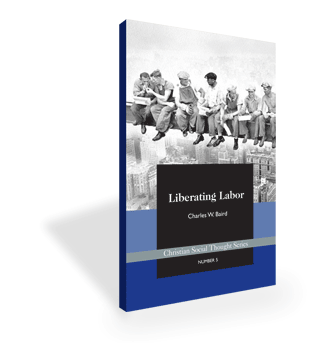In theory, unions foster good relations between employers and workers and prevent mistreatment or exploitation in the workplace. Pope Leo XIII sanctioned trade unions in Rerum Novarum during the Industrial Revolution; however, his support was very specific and is often misinterpreted. There is a common misunderstanding that Catholic social teaching supports any type of unionism or labor association.
Baird argues that Catholic social teaching supports voluntary unionism and condemns obligatory association—which is exactly what this Michigan legislation addresses. Liberating Labor observes and explains the basic principle of freedom of association and gives a clear and simple economic analysis of labor markets as well as the economic principle of voluntary exchange. It goes on to explain why these economic concepts are consistent with Catholic social teaching. Baird closely scrutinizes the common misconceptions about the process of the labor market that have caused the widespread support of compulsory trade unions. He concludes the essay by offering his own model of unionism that is consistent with papal teaching and sound economics.
Charles Baird is professor of Economics, Emeritus, at California State University, Hayward as well as founder and former director of the Smith Center for Private Enterprise Studies in Hayward, Calif. Liberating Labor is the fifth book in the Christian Social Thought series from the Acton Institute. You can learn more about and purchase the monograph in hard copy or ebook here.
